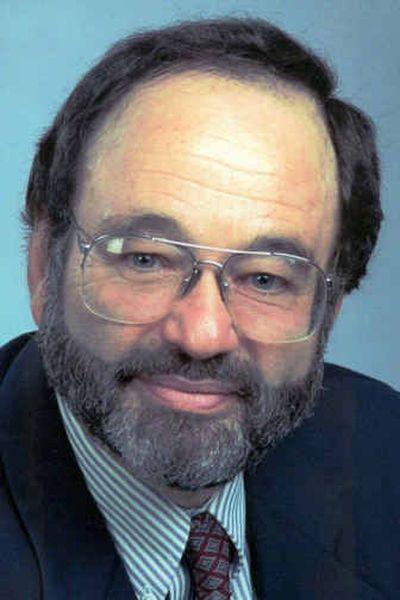Festival wraps up with Bach’s cantatas

The 27th Northwest Bach Festival comes to a conclusion this weekend with a concert of Bach’s cantatas Friday at St. John’s Cathedral and a performance of Bach’s songs and harpsichord music Sunday at Mary Queen Catholic Church.
“We’ve done the Bach blockbusters – the passion oratorios and the Mass in past years, some of them more than once,” says Gunther Schuller, the festival’s artistic director. “But there are still so many of his amazing and beautiful cantatas, we’ll never get through them all.”
For Friday’s concert, Schuller will conduct the festival chorus and orchestra, and vocal soloists Janet Brown, Barbara Rearick, Rockland Osgood and James Maddalena, in four cantatas: “Wachet auf, ruft uns die Stimme,” “Gleichwie der Regen und Schnee,” “Bekennen will ich seinen Namen” and “Herz un Mund und Tat und Leben.”
“Some of Bach’s sacred cantatas – and there are 200 at least that have come down to us, who knows how many are lost – are very famous,” Schuller says. “But there are others, just as beautiful, that are rarely performed at all. I wanted to do some of each.”
“Wachet auf, ruft uns die Stimme (Sleepers Awake, A Voice Calls to Us),” Cantata No. 140, was one of the most widely known in Bach’s own time. The composer himself turned its most famous chorus into an organ chorale prelude that was included in a collection of six such works that were among the tiny number of Bach’s pieces published in his lifetime.
And “Herz un Mund und Tat und Leben (Heart and Voice and Deed and Life),” Cantata No. 147, became famous as the source of “Jesu, Joy of Man’s Desiring” – popularized first in Myra Hess’ piano arrangement, then as Apollo 100’s hit “Joy.”
“The amazing thing about the cantatas – well, one of the many amazing things – is Bach’s inventiveness in orchestration,” Schuller says. “Very rarely does he duplicate exactly the same combination of instruments. And this is not even saying anything about the way he uses solo and chorale voices.”
From the infrequently performed cantatas, Schuller selected “Gleichwie der Regen und Schnee von Himmel fallt (Like As the Rain and Snow Fall from Heaven),” Cantata No. 18, and “Bekennen will ich seinen Namen (I Acknowledge Thy Holy Name),” Cantata No. 200.
“No. 18 is one of Bach’s earliest and uses of an instrumental group with no violins,” Schuller says. “And No. 200 is one of his last cantatas, and it is only a fragment, only a single, short aria for alto, not even five minutes long. But what a five minutes!”
Sunday’s free community concert at Mary Queen Catholic Church is appropriately titled “Super Bowl Bach,” because of the television competition of the day.
Harpsichordist Mark Kroll will play six of the short preludes Bach wrote for his son Wilhelm Friedemann, as well as the French Suite in B minor. He’ll be joined by tenor Osgood for a group of the sacred songs Bach wrote or arranged for a collection published in 1736, now known as the Schemelli Songbook.
In addition to the concerts this weekend, mezzo-soprano Rearick and Kroll will present master classes today at noon and 3 p.m., respectively, at Eastern Washington University’s Music Building Recital Hall on the Cheney campus. Classes are free and open to the public.